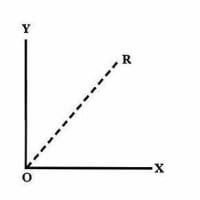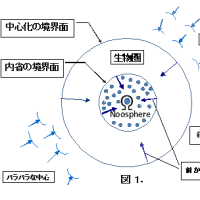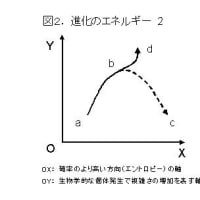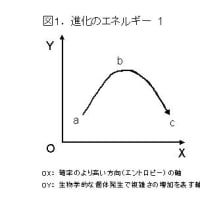Body vs Spirit, and Realm of Mind
When you feel tired and think you should rest but you don't want to rest and keep doing. Although the subject is in one's own consciousness, a discrepancy occurs between the body and mind, and for some reason a conflict arises in the desires of one's mind. What is the feeling that we consciously feel, such as fatigue that occurs in our body? Even when we are tired, we may forget about our fatigue if we work hard because we think we have to do something. Where did the fatigue we felt then go? Has the cause of the fatigue been resolved, or is the cause of the fatigue still present but no longer felt?
Our whole body is covered with nerves, and the brain has a mechanism for sensing physical pain and fatigue. But, the functions of the nervous system cannot be controlled by one's own feelings. You may want to continue doing something even if you are aware of physical changes such as fatigue or pain. Even if you feel physical pain or fatigue, you sometimes ignore it and go to work, and sometimes you can't stand the pain and want to take a break. When you feel fatigue, it is normal for you to take a rest. However, what does it mean to forget about fatigue when you persevere and do your best even when it's hard?
It is true that when there is pain or fatigue that occurs in the periphery, the body may respond automatically through autonomous actions. However, at that time, it seems like my body is following my strong feelings. It seems to me that there is another area within me, like my own mind, that moves without thinking based on my desires.
Body vs Spirit
Thinking about trying a little harder to keep going when you feel tired is a reaction in your cerebrum and an action of your spirit. If you follow your normal habits when you feel very tired, you will be conscious of your fatigue and take a break. In other words, taking a break because you're tired is following your body's desire, and not taking a break even when you're tired is an action based on your “want to do that.” If you have a strong desire to accomplish what you want to do, that will motivate you to forget your fatigue and take action.
In normal situations, when something like muscle pain or fatigue from work sends out a warning signal to your consciousness, you should consciously take action to respond to that warning. In other words, when muscle activity accumulates fatigue, the body deviates from normal activation, and the brain accepts this and issues a warning signal. Here, if you have a strong desire, you will think about whether to take a break or continue. However, when the desire is strong, we don't think about which one to choose. In reality, we continue to act based on spur-of-the-moment decisions. It feels as if the final decision to take action was made directly based on a desire within the realm of one's own mind.
The realm of the mind seems to be in the position of controlling the self as a whole. There is a realm of the mind that is related to both the body and the spirit, and when some kind of conflict occurs in that area and an imbalance occurs, stress will occur. At that time, that stress affects both your body and mind.
Body action vs Realm of Mind
On the other hand, the basic premise for us living beings is to continue alive. But in our daily lives, we are not aware of this desire to live. On the body side, internal substances circulate and various reactions occur autonomously in order to continue life. You have the flexibility to push yourself to a certain extent, but if you push yourself beyond your limits, physical problems will occur. If the action you decide to take at that time imposes a burden on your body to the extent that it causes problems, you have no choice but to stop the action. On the other hand, when a strong desire arises in your mind, even if your body is not feeling well, your entire body may act immediately without your brain thinking about what to do.
We act with compassion for others without thinking, start something impulsively, or act irrationally. Even if your body and spirit are normal at the time, your actions may occur suddenly and unconsciously, and you may later wonder why you did such a thing. The behavior here is not based on the situation on the physical side, nor is it thought from the spirit side, that is, the cerebrum, but the behavior is instantaneous and involves the whole body in response to the desires that occur in the mind.
In other words, we have a separate area in which we create and carry out our desires. In this case, it is the realm of one's own mind that is causing the desire, and thinking about whether or not one can do it or not should be a spirit in the cerebrum. However, the action at that time goes beyond the cerebrum function.
Even humans with highly developed cerebrums have regions where they are suddenly driven to action by their inner desires. And this causes a discrepancy in our own consciousness.
Humans not only act directly from their physical desires, but also act by thinking about what to do with their desires through the mental functions of their cerebrums. However, even so, humans may act directly from the desires of their minds. It seems like something is complicated here. Let's think about that a little more.
Cerebral Function vs Realm of Mind
Humans, as living organisms, have mechanisms within their bodies to continue living. Living is a desire that is carried out by the whole body, and because of this, the whole body is able to act as one. The nervous system and brain support this through autonomous control. In other words, we are able to carry out normal life activities even when our thinking brains are not aware of it. Even if the balance is lost somewhere, there is a mechanism in place that automatically corrects it, and the correction mechanism by the body's immune system is always at work. However, due to the cerebrum, humans have come to have motivations independent of physical desires. And our actions become more complex as our minds are motivated by their own desires.
If we silently and habitually continue our daily actions and have no doubts about the situation, no problems will arise. Behaviors that become habits are done automatically and without our conscious awareness. On the other hand, when you start to feel dissatisfied with your current situation by thinking things like “I want to do something new” or “Why am I doing this?”, new motivation arises due to cerebral introspection, and you prepare for action.
Also, there are situations where we act immediately based on desires in the realm of the mind rather than desires from the body. It is a direct action rather than thinking with the brain, and at that time, the body and mind become one and the whole body responds. Considering this, it can be thought that the realm of the mind is developed from the desire to live that is inherent in life.
On the other hand, because we think with our cerebrums, we tend to think, “This is not the way it is” based on our past experiences, and we also have introspection such as “This is not the way I should be.” However, on the contrary, this trial and error of the brain's introspection creates new goals and becomes the motivation for action.
The cerebrum is involved in actions that arise from thoughts, that is, actions that are motivated by the results of trial and error through introspection. The cerebrum does not control everything in the body. It seems that there is a gap between the body's warning system and the brain's recognition.
There is a consciousness of living that we are not aware of, and there is a consciousness that we are aware of as individuals. What acts instantly in that gap is our own desire in the realm of our own mind. As for how to balance this, we don't think about it and act logically. Our desires are intricately intertwined with our own experiences, habits, stereotyping ideas, and influences from those around us.
Due to the recent advances in communication technology and the influence of the information society, we are flooded with advertisements that make us want convenient things, and there is a tendency to promote products by increasing people's concerns about their health. In other words, we live in an environment where desires are overstimulated. Once you step into society, you become entangled in the complexity of human relationships. Just working and earning money to stabilize your life can cause mental stress.
Modern society has developed in a way that complicates the realm of our minds. In that case, various desires and illusions are created in the realm of our mind, and our mind may be deceived by these illusions and illusions. Due to the body's inherent sense of balance, it should be able to move normally and self-sufficiently, regardless of such confusion. But are we giving in to our desires and throwing our bodies out of balance, causing stress and illness?
Wisdom of Body and Consciousness
Generally, living things silently repeat habitual behaviors throughout their lifespans. The body should automatically maintain its vitality. In the body's metabolism, there is a mechanism in which the imbalance and harmony of reactions between substances are repeated and circulated.
In humans, the autonomic nervous system also regulates the body through the alternation of the sympathetic and parasympathetic nervous systems. However, although we can be conscious of ourselves, we do not realize that we are alive unless we fall into the worst situation due to illness or injury. In our daily lives, controlling our bodies is something we take for granted, and is similar to the existence of air.
In other words, as long as you only engage in habitual behavior within the range of your body's desires, there is no problem in the first place. However, as humans develop their cerebrums and begin to think in language, they develop a sense of self-awareness and are able to motivate their actions through mental effects. Its mental effects give rise to personal desires other than simply living. Various desires arise, such as hobbies, travel and art, as well as the desire for money and power. We take action to make our desires come true, and when they don't come true, we create an imbalance in our minds. Physically, it causes subjective symptoms such as stomach pain and fatigue, and mentally, it causes internal sensations such as irritability.
In addition to physical conditions, frustration and other factors can cause various conflicts and imbalances in the mental realm. And it leaves behind something that sticks in your mind, like an agony that cannot be expressed in words. The subject is the consciousness that corresponds to the realm of one's own mind. Although the body and mind are not separate, there is an imbalance due to one's own unique desires, and the corresponding consciousness feels “inconsistent.”
However, this “inconsistent” feeling is the result of our own mental effects. It is our consciousness that balances the desires of the mind and our spirit. I think this is the answer to the first question I posed here.
Realm of Mind and Spirit
I believe that the reason why life can continue to be revitalized is because a single mass of life forms a region of the mind that encompasses the entire body, and is therefore able to remain unified as one living thing. In other words, the realm of your mind, which has developed from the consciousness of living, encompasses your entire body and spirit and moves you.
On the other hand, by developing the brain and nervous system, humans have not only acquired language and thinking, but also created a mind that is self-aware and thinks. Unlike the physical demands of living, the functions of the human spirit are infinitely expandable, and there are no limits to what we can think. In other words, there is potential for further improvement in mental effects. This means that there is no need to get caught up in fixed ideas and become “stuck in one’s ways” about physical or miscellaneous desires. In other words, if our consciousness is in a balanced direction between the realm of the mind and the spirit, there will be no problems.
However, what we must be careful about here is that mental effects are not just for the better. The mind is a dynamic entity that follows the realm of the mind, and if the realm of the mind is dominated by excessive desires, the mind may turn toward evil, such as deceiving and exploiting others or monopolizing profits.
Now, from a perspective that looks at humanity's place in life, it has to do with what the future of humanity will be. One premise is that the development of life is in the direction of increasing complexity. The other thing is that humanity will inevitably become more centralized. Simply acting within the range of physical desires is the same as the behavior of animals before humans. So, what kind of future do we have as humans as we become more complex and centralized? I will think about this topic a little more next time.
Written by Ichiro, 11/26/2023,



















